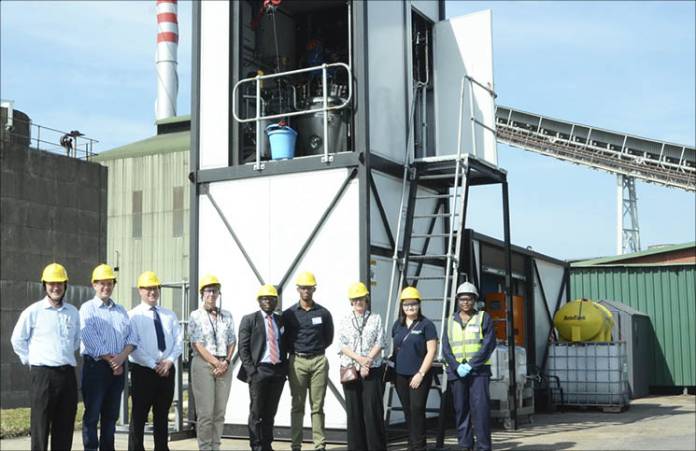South African Initiative Turns Paper Waste into Ethanol

A breakthrough initiative led by the Paper Manufacturers Association of South Africa (PAMSA), in partnership with Stellenbosch University, Sappi Southern Africa, and Mpact, has successfully converted cellulose fibre-rich waste from pulp and paper mills into ethanol. Demonstrated at Sappi Tugela mill in KwaZulu-Natal, the project utilizes a specialized fermentation process to transform paper sludge into bioethanol without pre-treatment, advancing environmental sustainability by reducing landfill waste and greenhouse gas emissions. The initiative promises economic benefits through premium bioethanol prices, job creation, and regional development, exemplifying South Africa’s commitment to innovation and the circular economy.
A pioneering solution has been developed to convert cellulose fibre-rich waste from pulp and paper mills into ethanol using a specialized fermentation process. The initiative, led by the Paper Manufacturers Association of South Africa (PAMSA) in collaboration with Stellenbosch University (SU), Sappi Southern Africa, and Mpact, aims to transform paper sludge – a by-product with high moisture content from paper production – into ethanol. This versatile material is used in making industrial chemicals, bio-based plastics, and sustainable aviation fuel.
The demonstration of this technology took place at Sappi Tugela mill in Mandini, KwaZulu-Natal, supported by co-funding from the Department of Science and Innovation (DSI) and PAMSA. This project reflects a significant advancement from an academic research thesis to a commercial application, showcasing a South African first in bioethanol production.
The research by SU has shown that paper sludge, along with food and textile waste, does not require pre-treatment before undergoing hydrolysis-fermentation. This process contributes to environmental sustainability by reducing landfill waste, greenhouse gas emissions, and improving water reclamation. Additionally, it supports the circular economy and industrial decarbonization.
Economically, the project is promising, as waste-derived bioethanol commands premium prices in global markets. It also offers potential for sustainable employment, upskilling opportunities, and regional economic development. The current demonstration plant, a mobile, containerized unit with a 1,000-litre bioreactor, is set up to process approximately 100kg of paper sludge daily. It is part of a nine-month trial at Sappi’s mill, with plans for a subsequent project at Mpact’s mill in Springs, Gauteng.
This initiative not only tackles waste management issues, but also aligns with the principles of a circular economy, enhancing sustainability and promoting responsible consumption and production. It underscores South Africa’s commitment to innovation and sustainability, through collaborations that strengthen the role of science and technology in modernizing manufacturing and advancing the economy. The project has gained global recognition for its environmental benefits, notably in GHG reduction and fossil-fuel substitution.
Source Link : https://thenewspaper.co.za/south-african-initiative-turns-paper/















